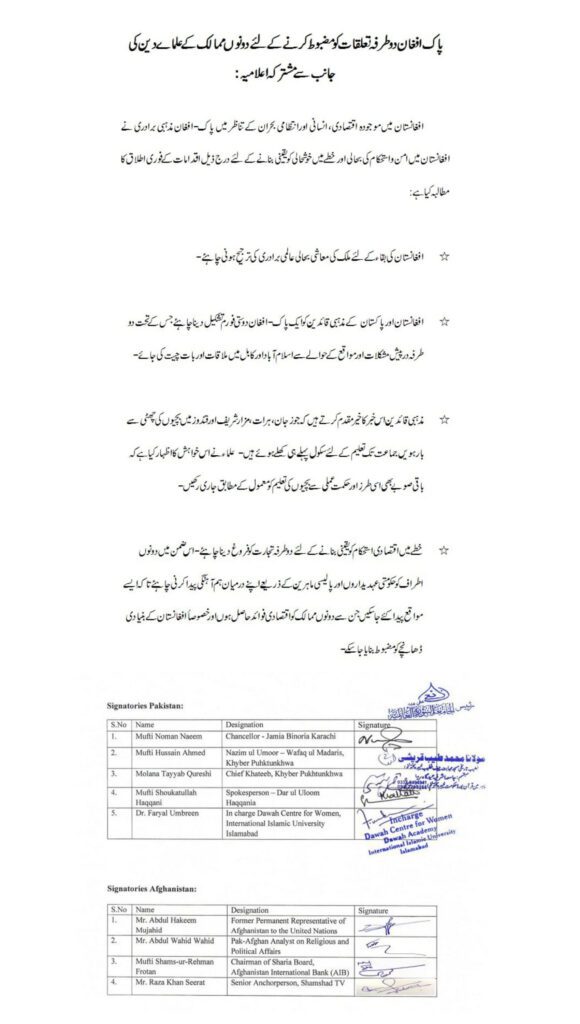The return of the Taliban in Afghanistan meant that the nature of relevant stakeholders in the region had changed, and so did their agency. The current theocratic system of governance in Afghanistan calls for inclusion of religious fraternity in the dialogue on the issues of public concern - given their potential of influence on Taliban leadership – and relying on them to advocate for the protection of fundamental human rights of Afghans.
For the last several years, the Center for Research and Security Studies (CRSS) has been successfully engaging Pak-Afghan Track 1.5/II actors on regional peace and security, economic and cultural connectivity, human rights, youth development issues, through its multitrack diplomacy initiative Beyond Boundaries.
As part of Beyond Boundaries (V), given the changes in context and nature of stakeholders post August 15, 2021, the Center engaged religious scholars from Afghanistan and Pakistan to discuss and devise recommendations on issues of mutual interest. The discussions keenly focused on the state of women’s rights in Afghanistan, economic repatriation and unfreezing of Afghan assets, an all-encompassing system of governance including all ethnic groups, and regional peace and security.
Throughout the dialogues held in 2022, the religious scholars voiced ardent support for Afghan girls’ and women’s rights to education and work. They also remained open to the idea of including religious fraternity in matters beyond the issues of vice and virtue, for instance, bilateral trade, human rights, peace, security and tolerance in the region, governance, etc.
The major watershed in the engagement with the religious fraternity is a comprehensive joint statement – issued by the eminent religious stakeholders and institutions from both countries – underscoring the need for more synchronized cooperation on core bilateral issues, stabilization of the Afghan economy and social infrastructure, and normalizing education for girls and women.


